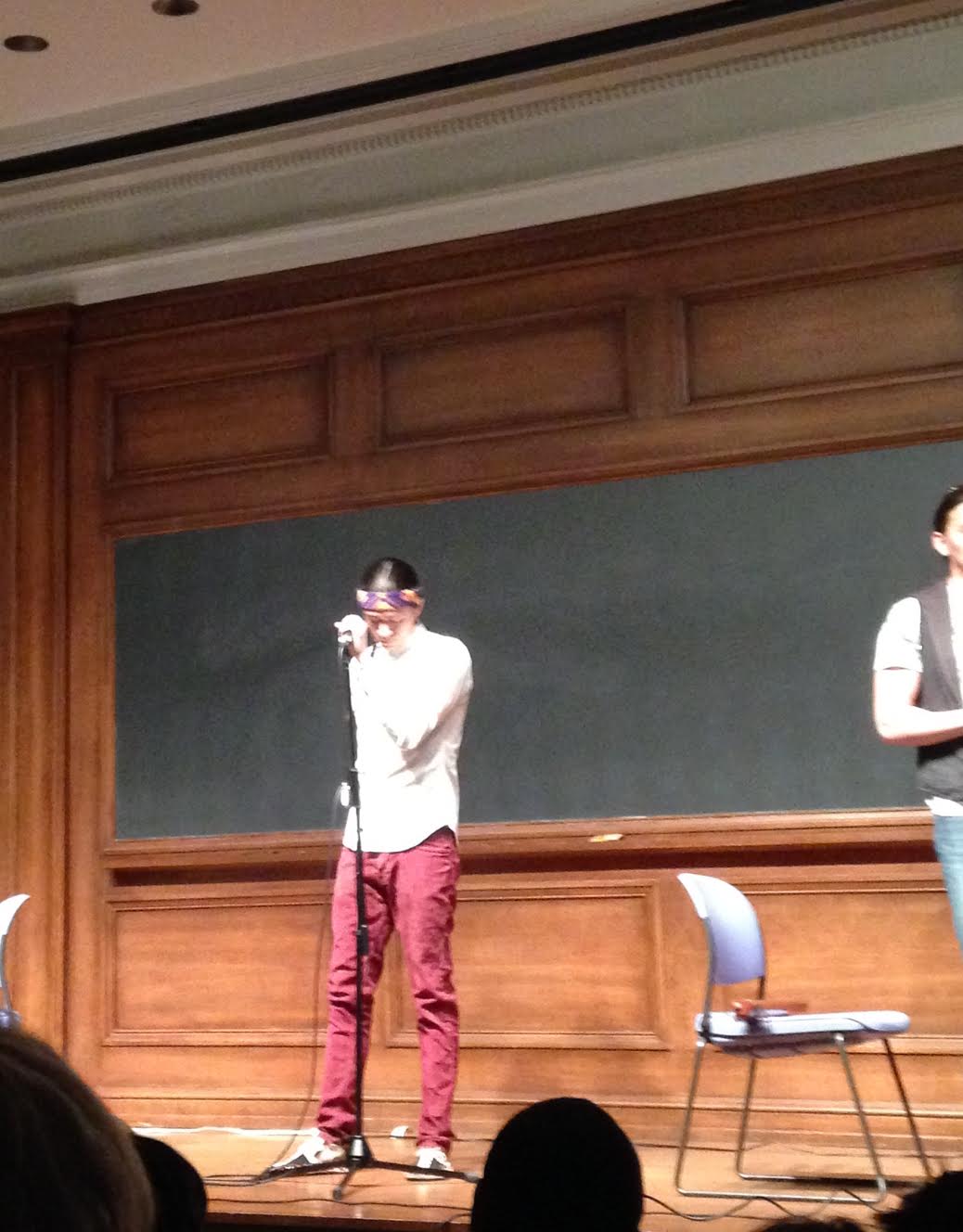
Halfway through Frank Waln’s performance Wednesday night, all of the lights in Harris 107 turned on.
Waln joked that it was the ghost of John Evans, one of Northwestern University’s original founders. But there’s truth behind every joke.
Waln is a 26-year-old Lakota hip hop artist and Columbia College graduate from the Rosebud Reservation in South Dakota, a survivor of centuries of genocide against indigenous people by white colonists like Evans, infamous for his role in the slaughter of around 100 Cheyenne and Arapaho people in the Sand Creek Massacre of 1864.
"Wild West," the third song Waln performed at Native American and Indigenous Student Alliance’s event, reflected on this historical trauma passed down through generations.
“You’re talking about people who are coming up out of genocide,” he said. “Our ancestors have been under stress since colonial contact. I’ve been under stress since I was in the womb.”
In his community, this genocide and stress is still happening. Cancer and suicide rates are higher for Indigenous people. Waln said his reservation currently has an 80 percent unemployment rate and a high school dropout rate almost as high. And it wasn’t until he moved to Chicago for college that he learned, from Andrea Smith’s book "Conquest", that he had had vaccines tested on him as a child to ensure that they were safe for white children.
“This trauma is real, this trauma is alive, these things are still happening,” he said.
Yet Waln has hope for his generation – the seventh generation. Expressed in his fourth song of the night, "Seven," Waln recalls a Lakota prophecy that stated that their people would suffer. This suffering would be felt the most by the seventh generation, but they would be the ones to heal the community and bring back a culture that was forced underground by U.S. government laws for almost a century.
“I get to go around and see all types of beautiful Indigenous communities across the U.S. and Canada, and everywhere I go I see young people, younger than me, who are smarter than I am, more connected than I am, who are doing a better job at defining their identity and their Indigeneity than I was at their age,” he said. “And to me that’s hopeful, to me that’s inspiring because we are all that seventh generation.”
He closed the evening with "My Stone," a song written for his mother on her birthday. It was his first time performing the song in public, but it is currently in NPR’s Tiny Desk contest. The performance was dedicated to his mother, the women in his family and Indigenous women in the Chicago area.